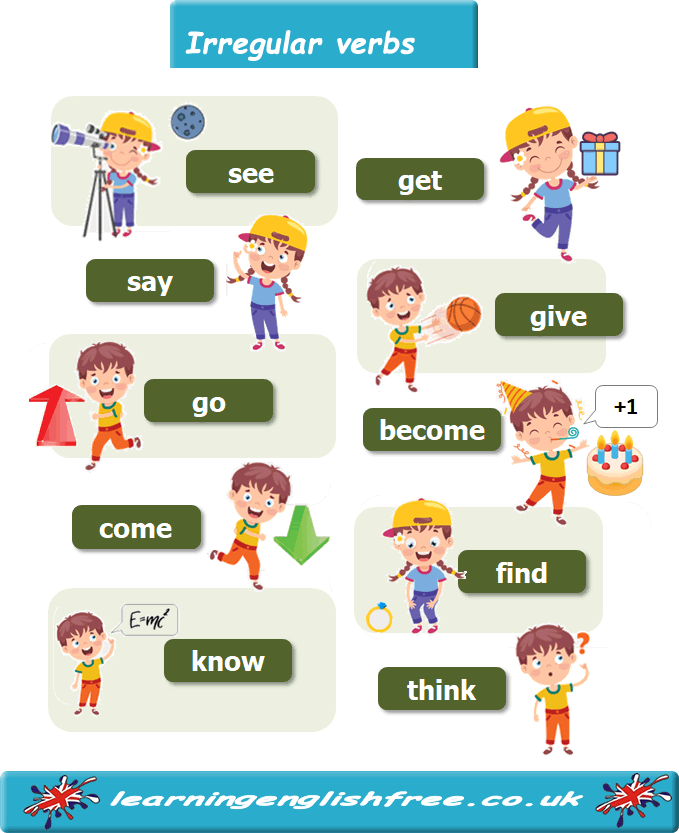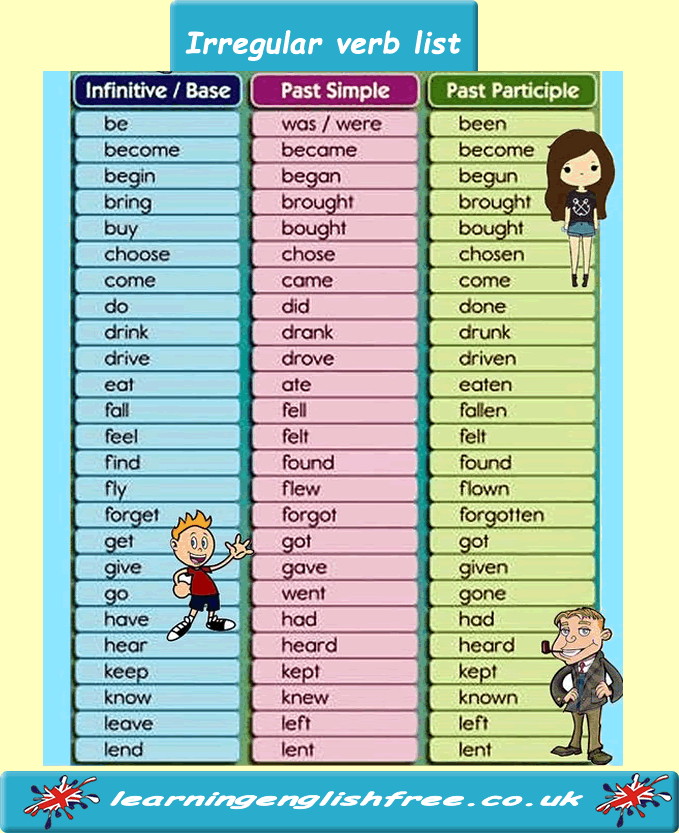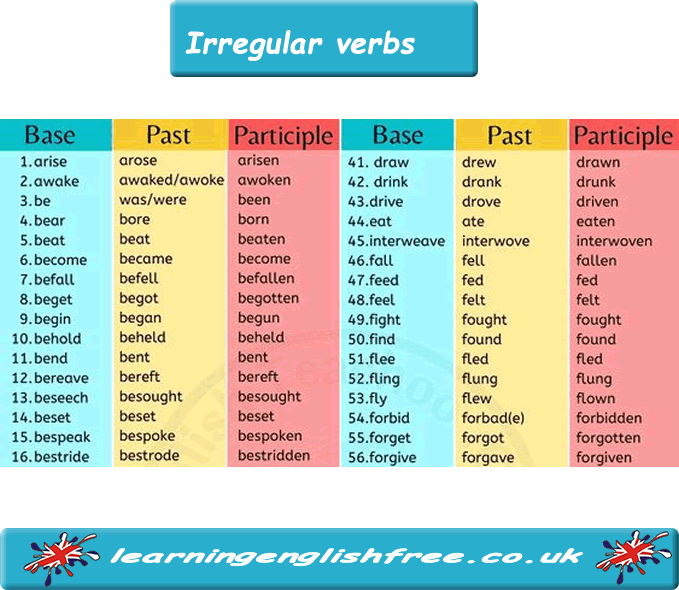
What are Irregular verbs in English?
Irregular verbs are a special kind of verb in English. Unlike regular verbs, they do not follow the usual rule of adding "-ed" to make the past tense. This means they change in a different way when talking about something that happened in the past. They can be a bit tricky, but they are important to learn because we use them a lot in everyday speaking and writing. Here are some examples of irregular verbs and how you can use them in daily situations:
Here are explanations and everyday examples for the irregular verbs "see," "say," "go," "come," "know," "get," "give," "become," "find," and "think." These verbs are essential in English because they are commonly used in various situations.
-
See (saw, seen):
- Use in Everyday Situation: "I saw a movie last night. It was great!"
- Importance: 'See' is a frequently used verb for talking about visual experiences.
-
Say (said, said):
- Use in Everyday Situation: "She said that she would join us for dinner."
- Importance: 'Say' is crucial for reporting or repeating someone's words.
-
Go (went, gone):
- Use in Everyday Situation: "We went to the beach over the weekend."
- Importance: 'Go' is one of the most common verbs for discussing movement or travel.
-
Come (came, come):
- Use in Everyday Situation: "Can you come to my house tomorrow?"
- Importance: 'Come' is essential for indicating movement towards the speaker or a specific place.
-
Know (knew, known):
- Use in Everyday Situation: "I knew the answer to the quiz question."
- Importance: 'Know' is widely used to express familiarity or understanding of something.
-
Get (got, got/gotten):
- Use in Everyday Situation: "I got a new book from the library."
- Importance: 'Get' is a versatile verb used for obtaining, receiving, or becoming.
-
Give (gave, given):
- Use in Everyday Situation: "He gave me a ride home from work."
- Importance: 'Give' is commonly used for the action of handing something to someone else.
-
Become (became, become):
- Use in Everyday Situation: "She became a doctor after many years of study."
- Importance: 'Become' is used to talk about a change or transformation into a different state or condition.
-
Find (found, found):
- Use in Everyday Situation: "I found a 10-pound note on the pavement!"
- Importance: 'Find' is often used when you discover something either by searching or by chance.
-
Think (thought, thought):
- Use in Everyday Situation: "I thought about your proposal, and I agree with it."
- Importance: 'Think' is a key verb for expressing the process of considering or having an opinion.
Knowing these irregular verbs is crucial because they frequently appear in everyday English. They are fundamental in forming correct and fluent sentences, whether in speaking or writing. Understanding and using these verbs will greatly enhance your ability to communicate effectively in English.

Irregular verb list

